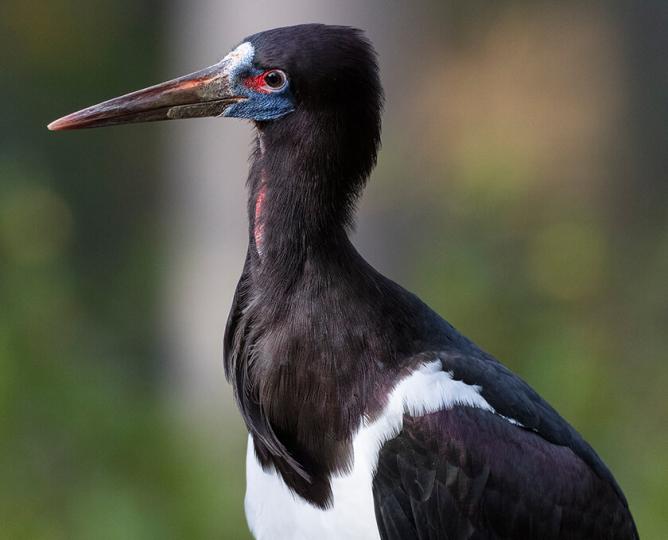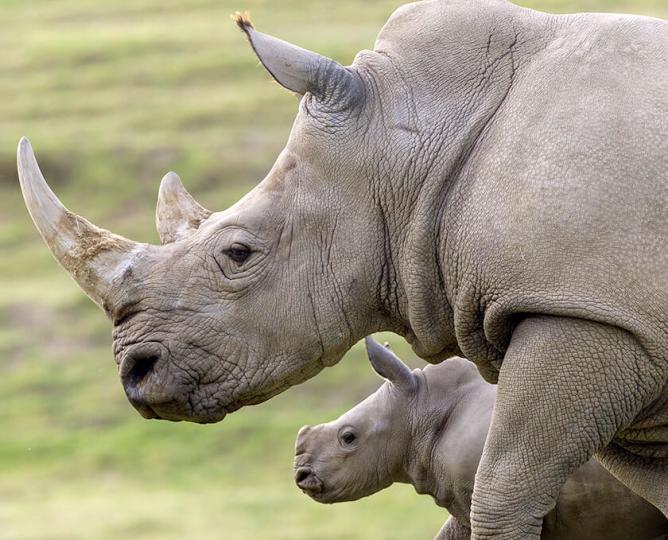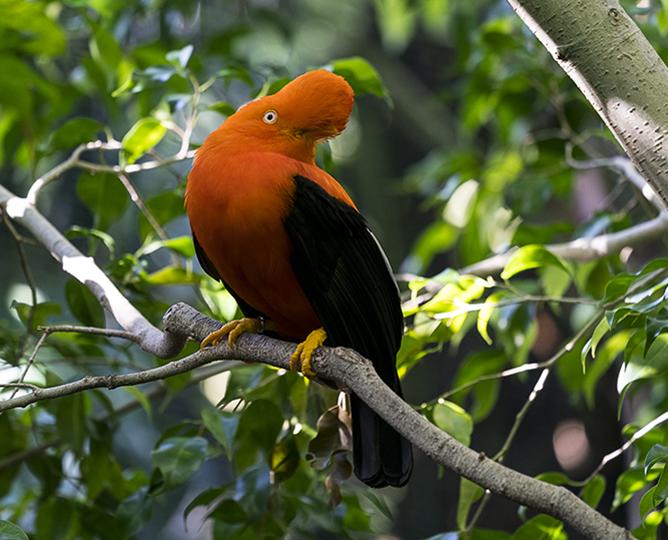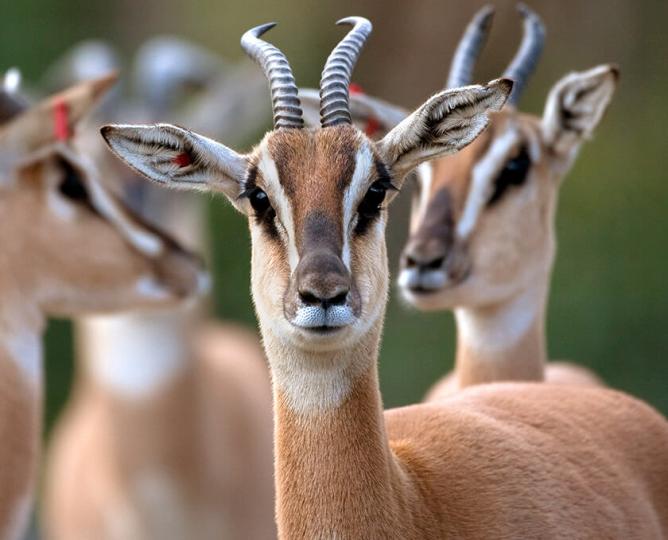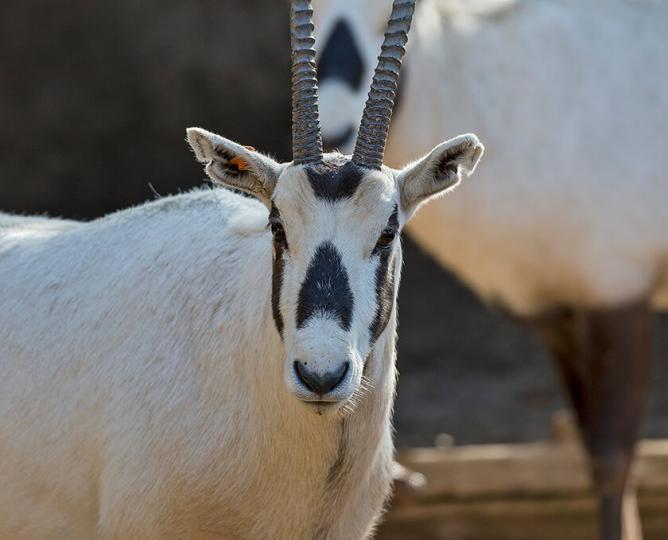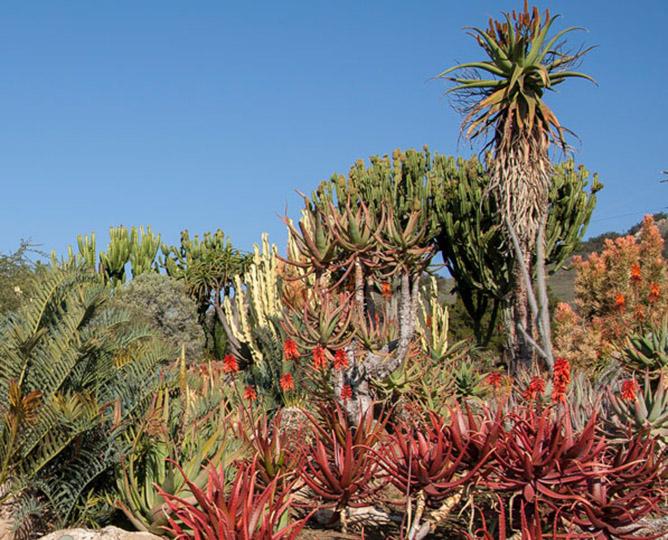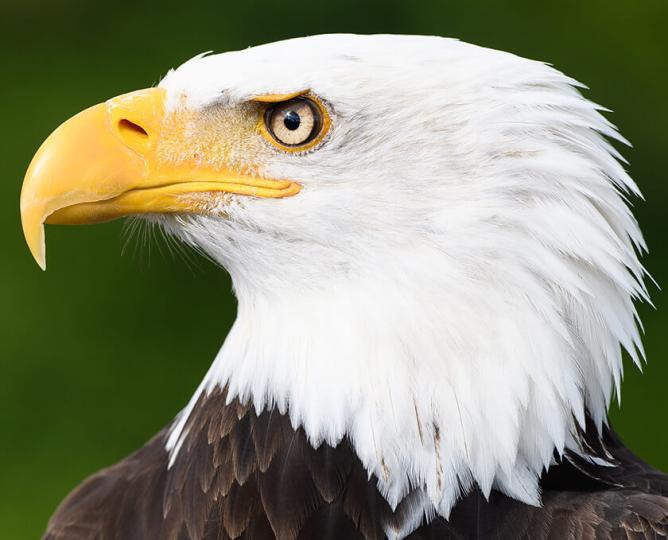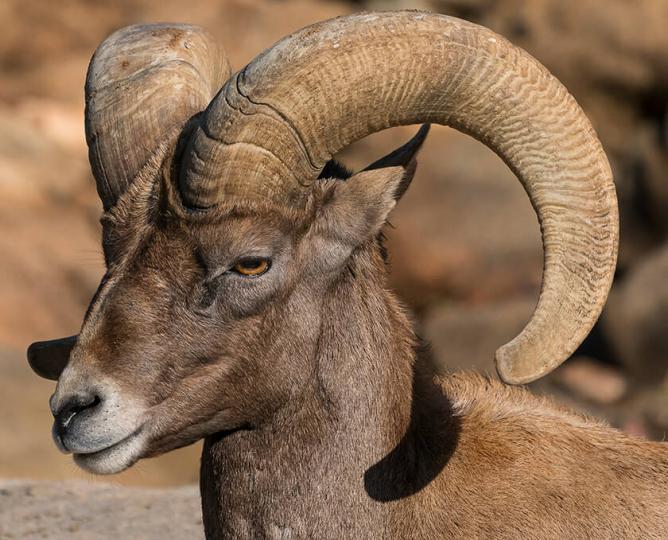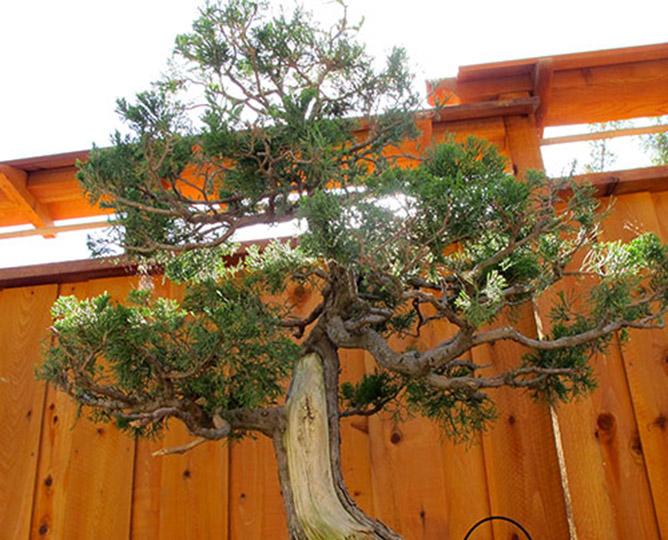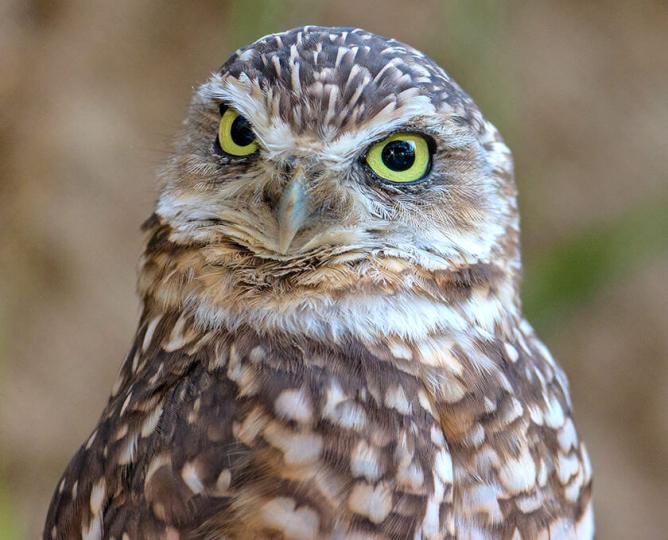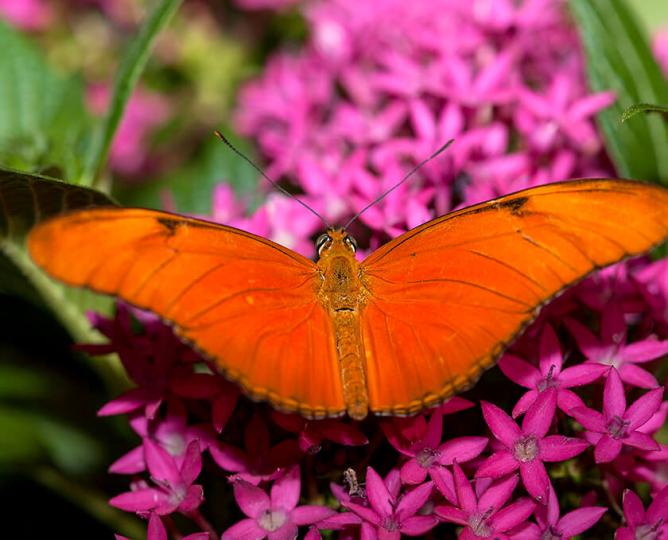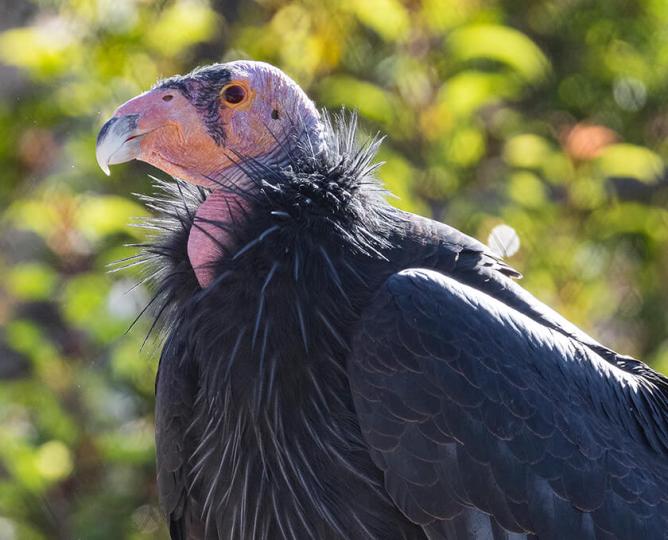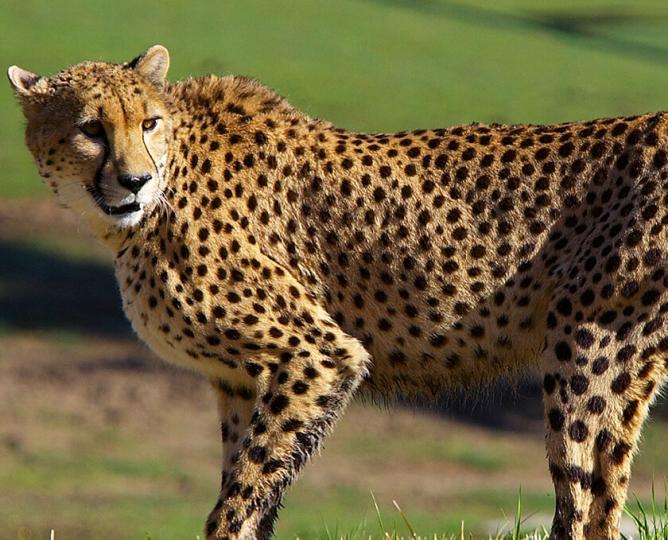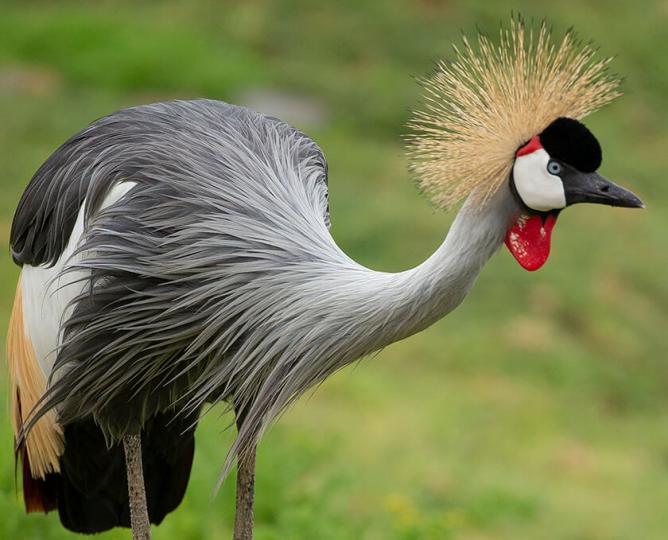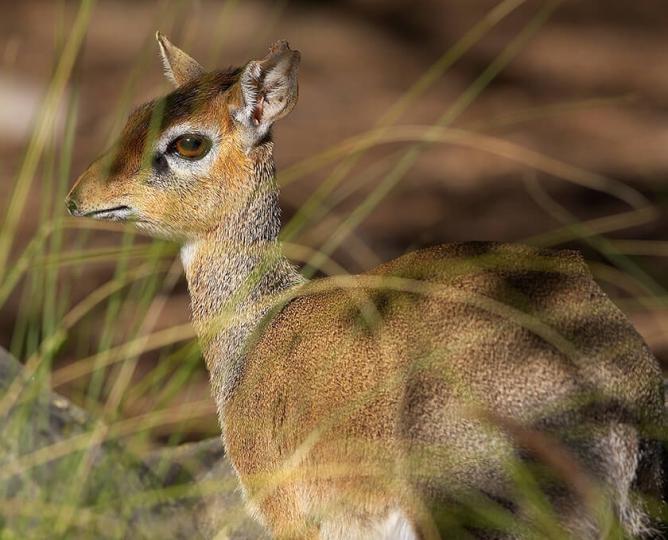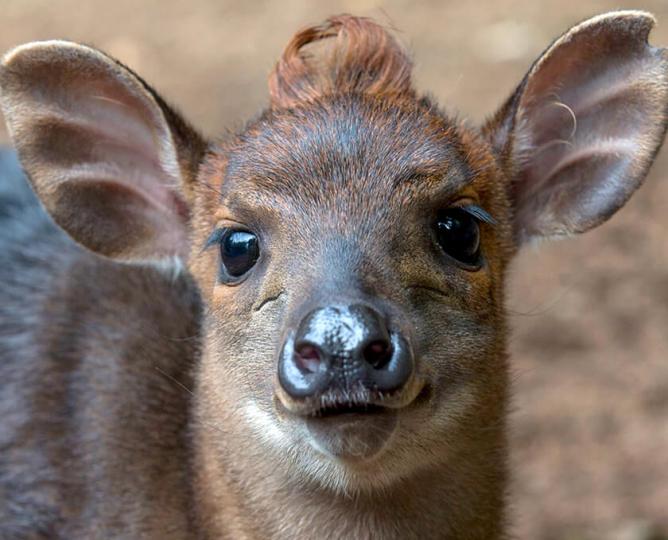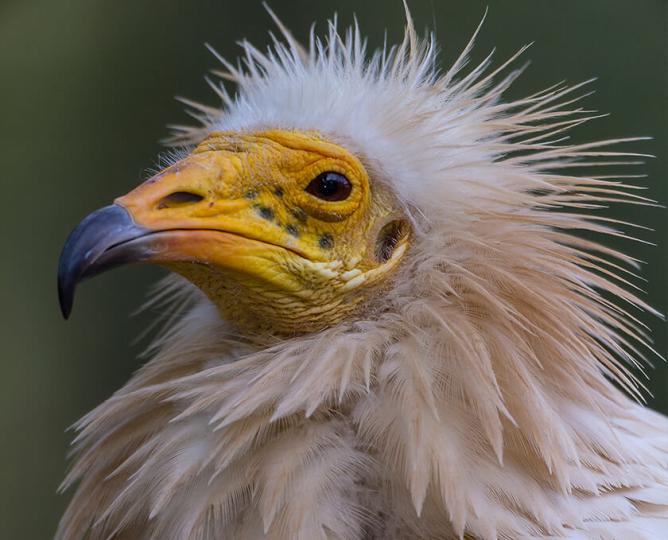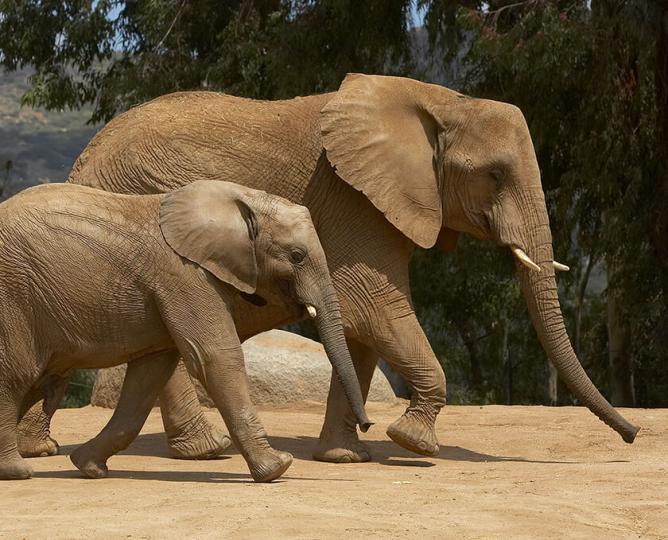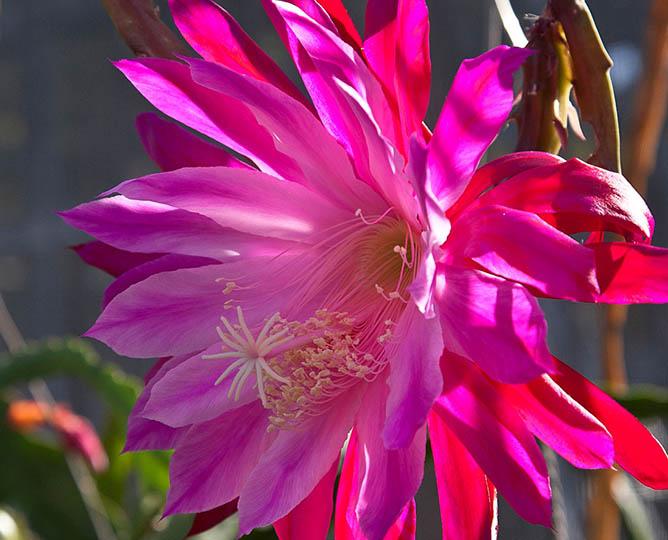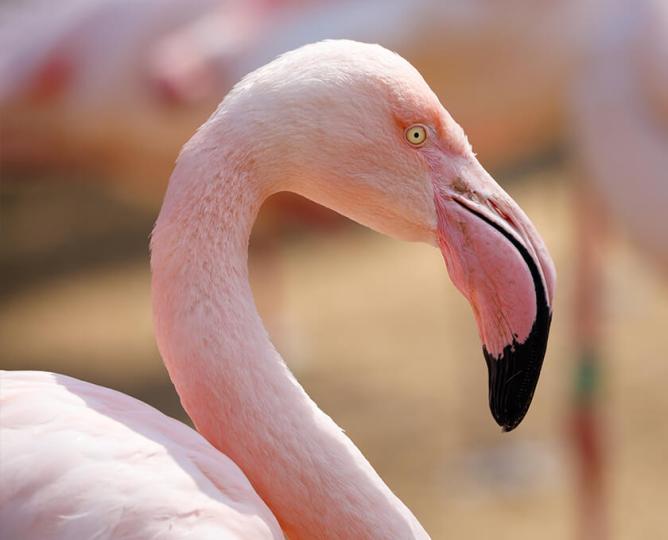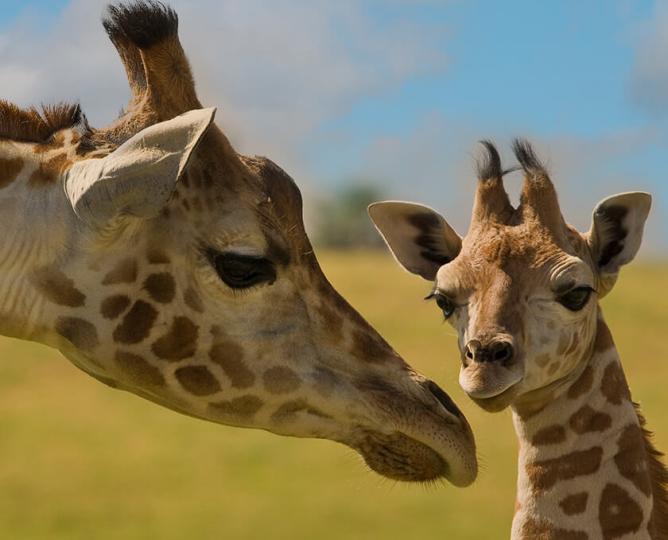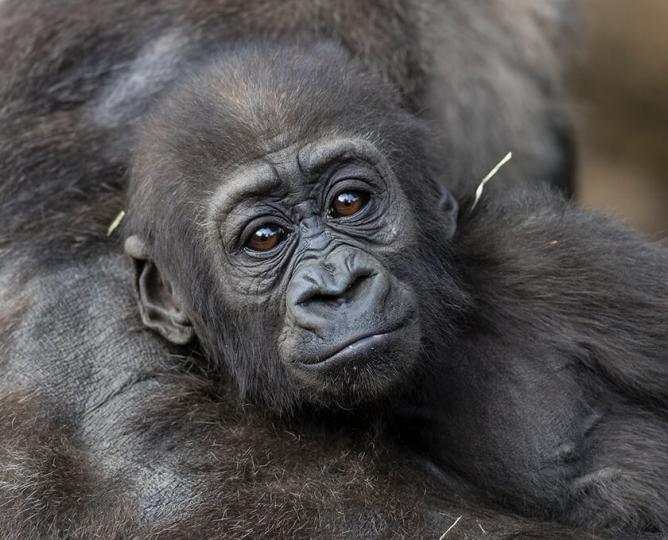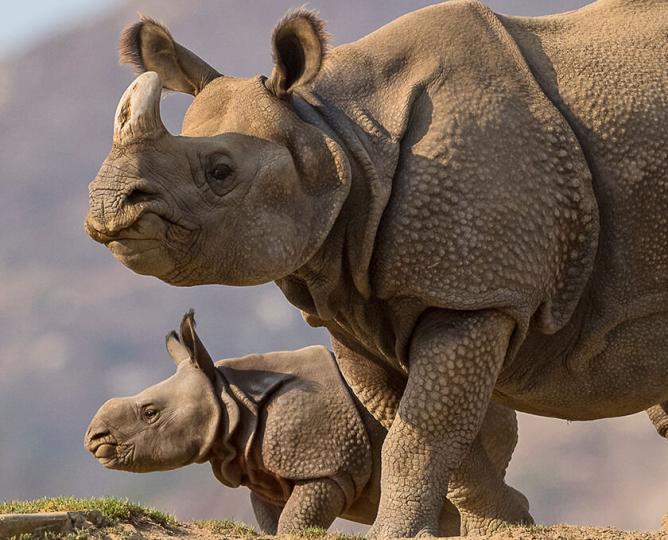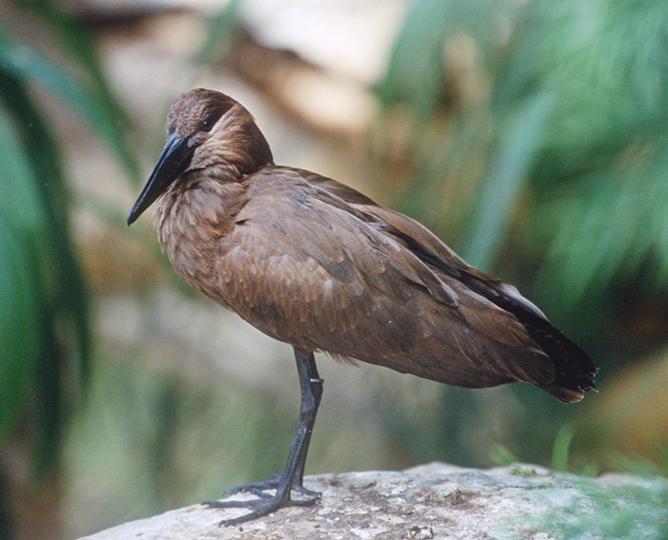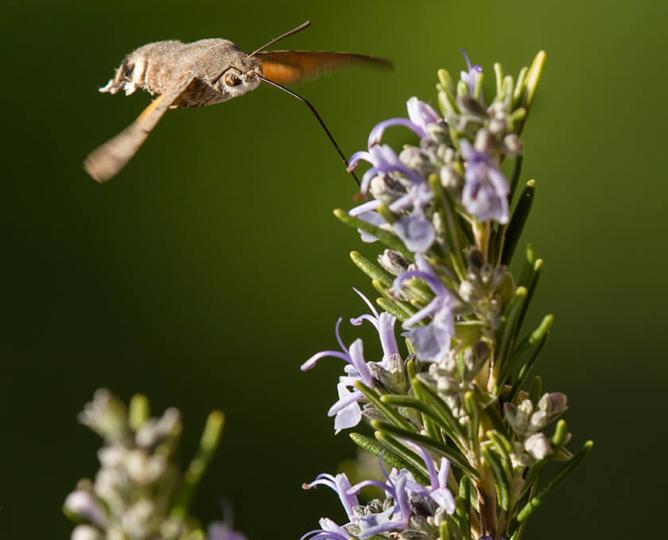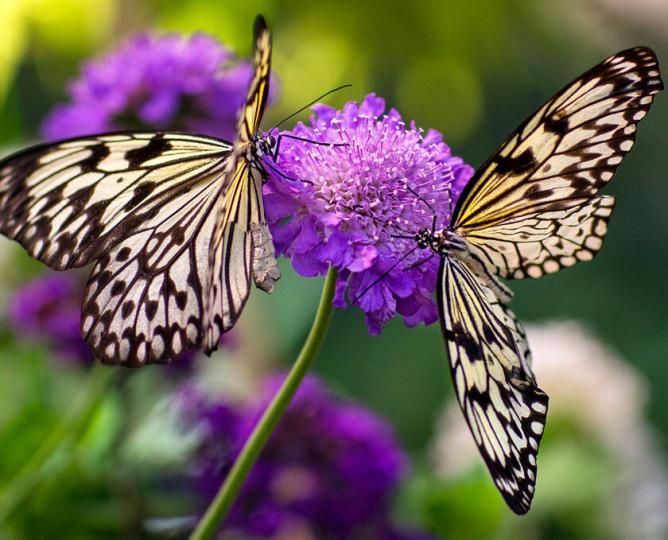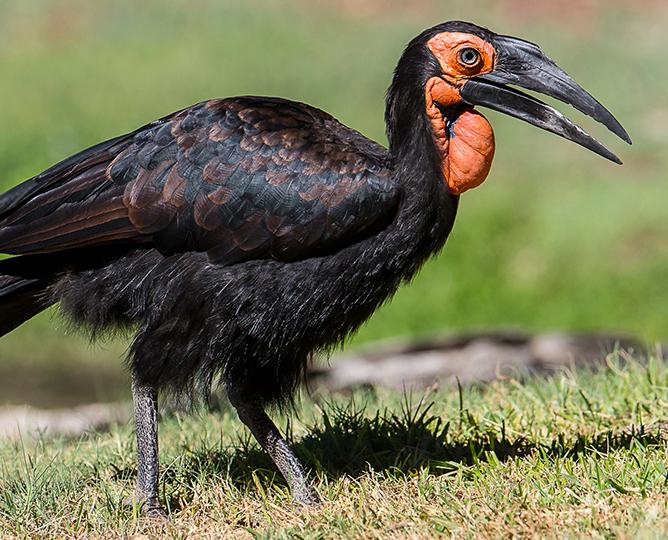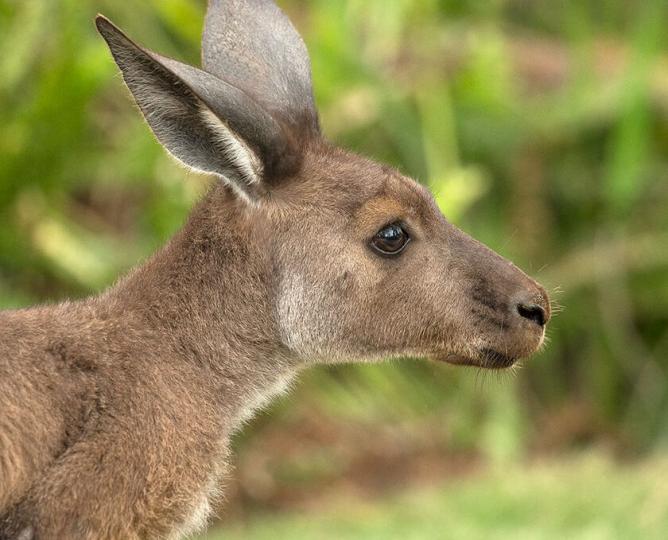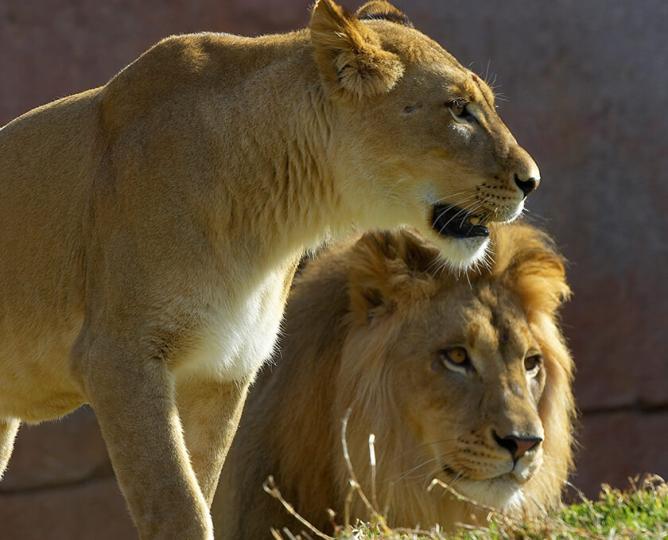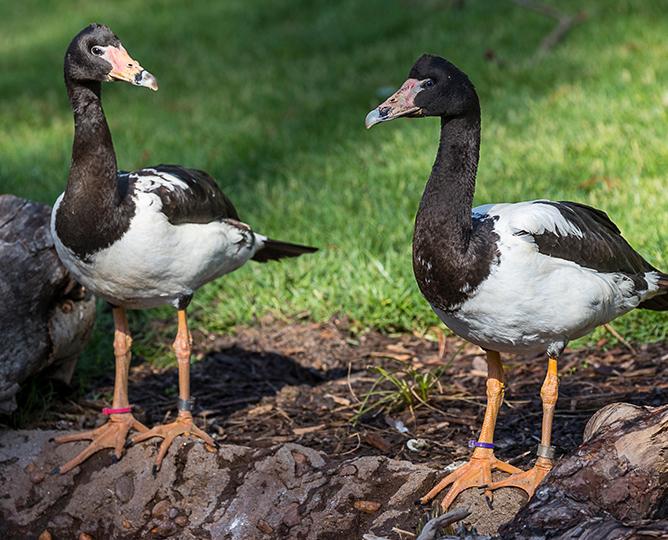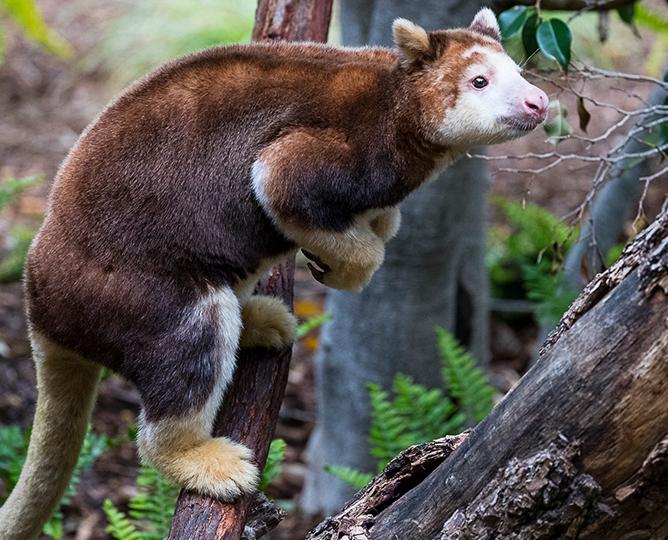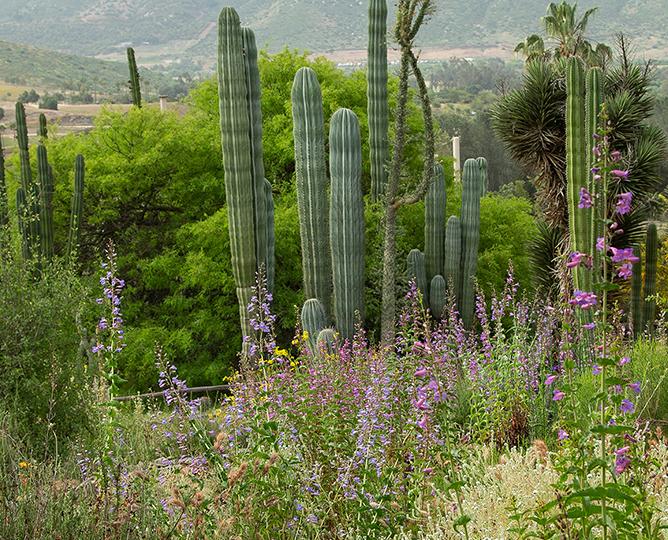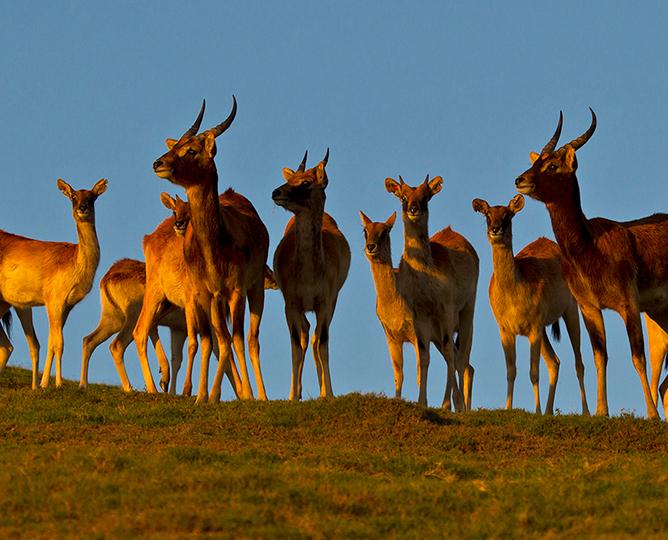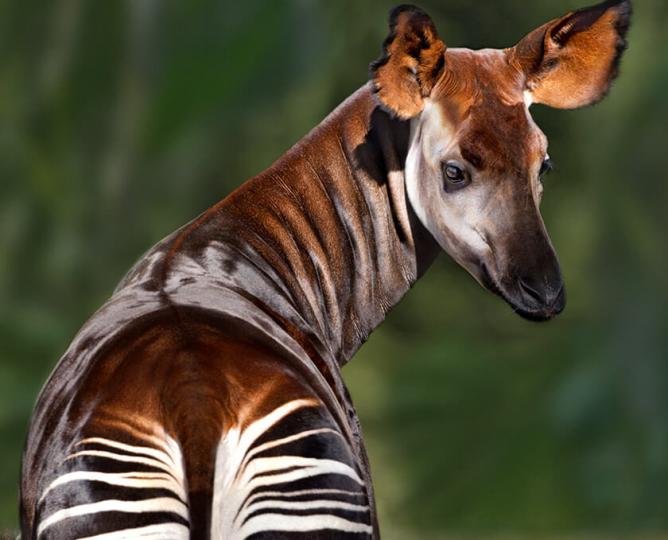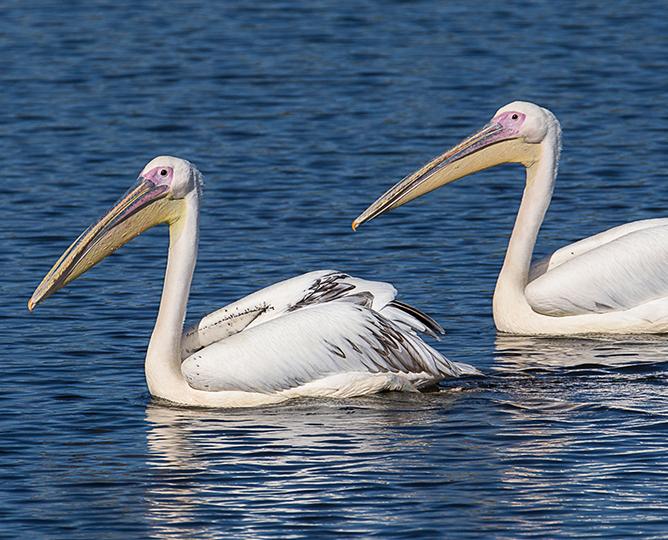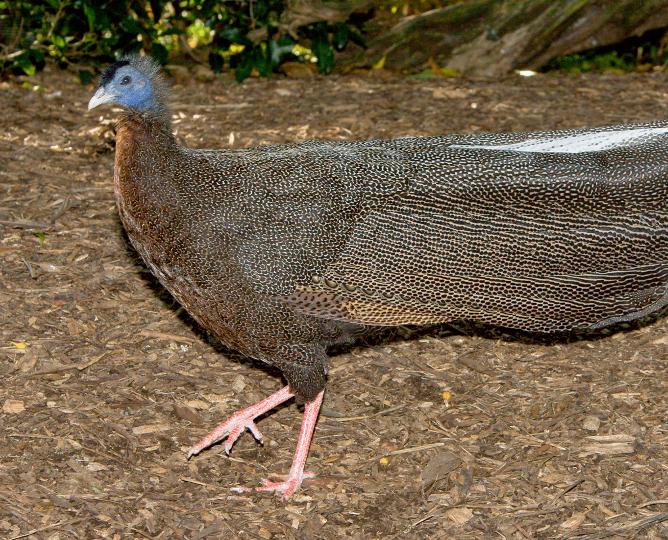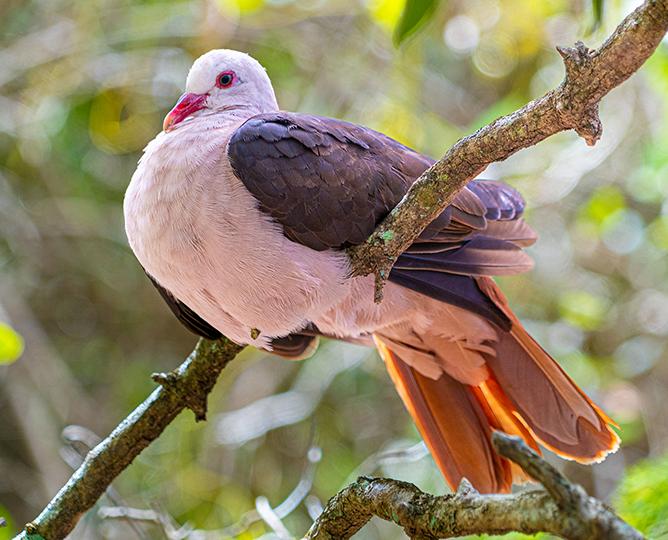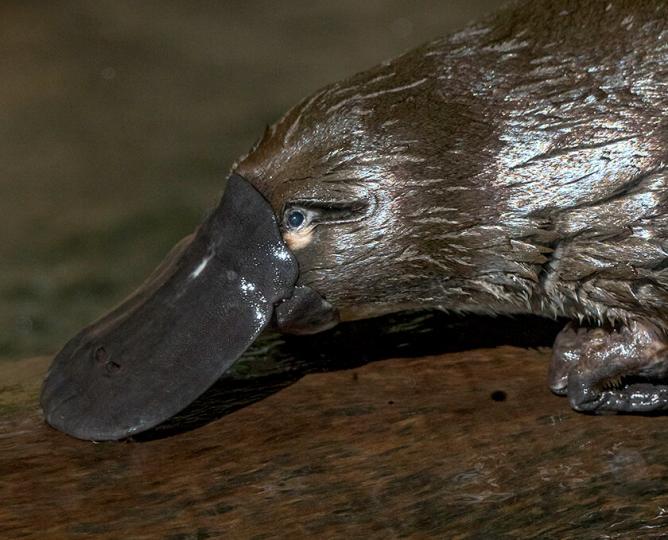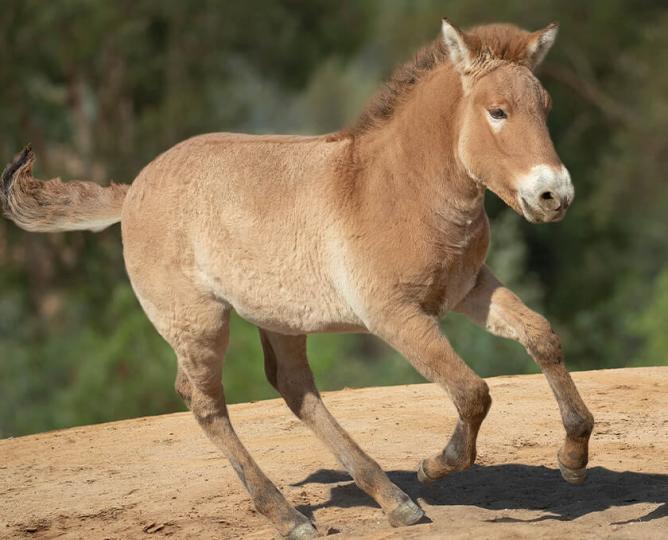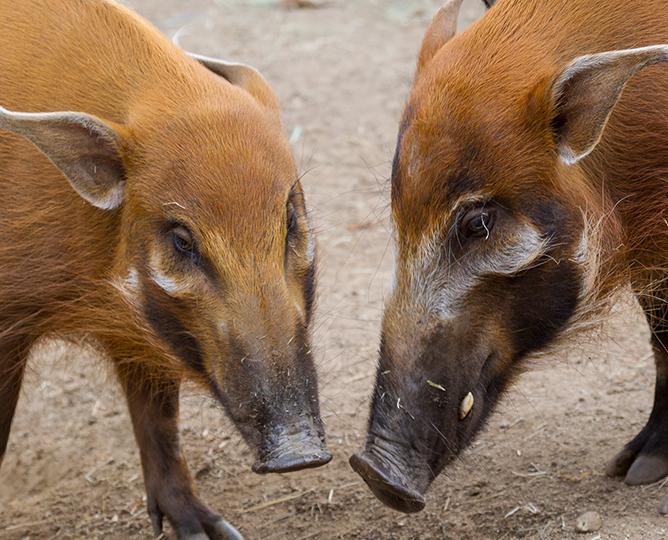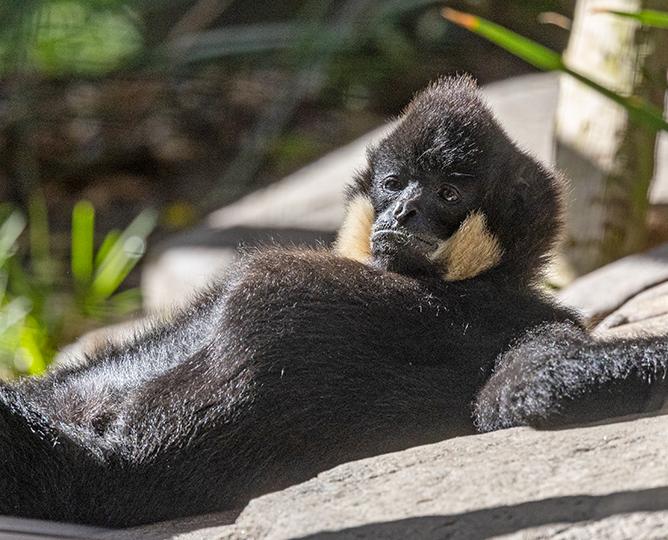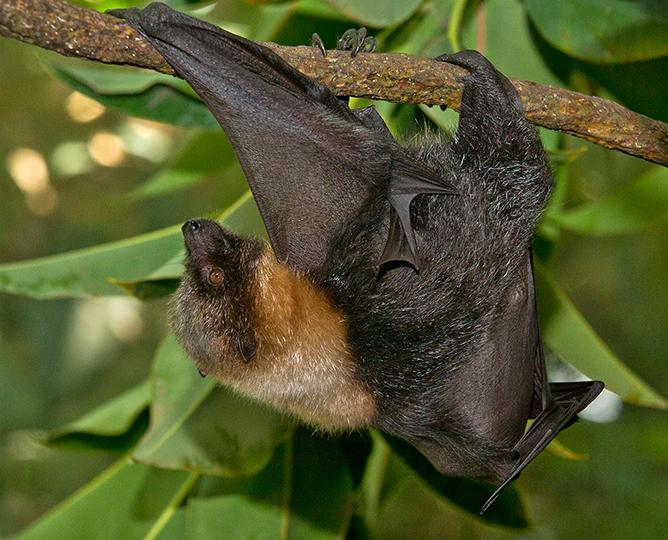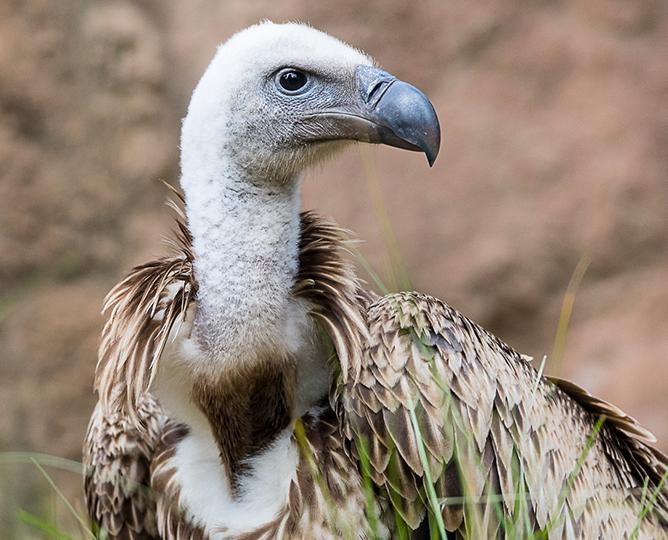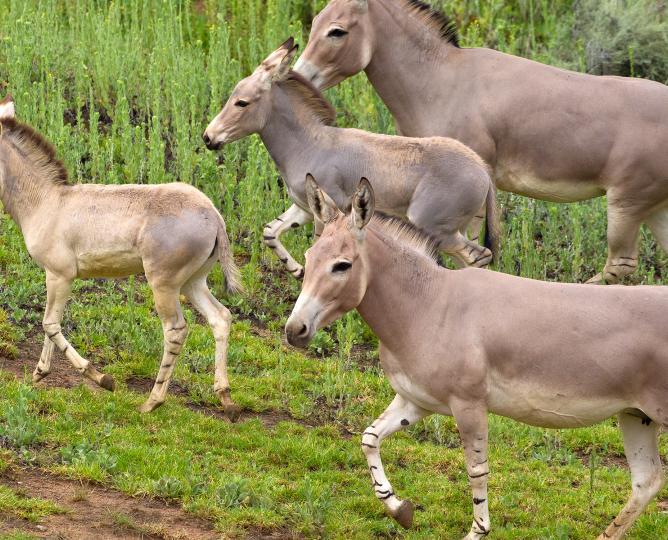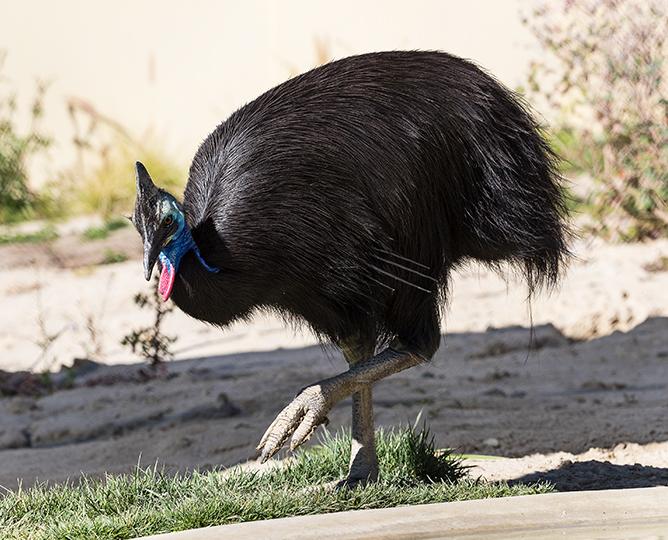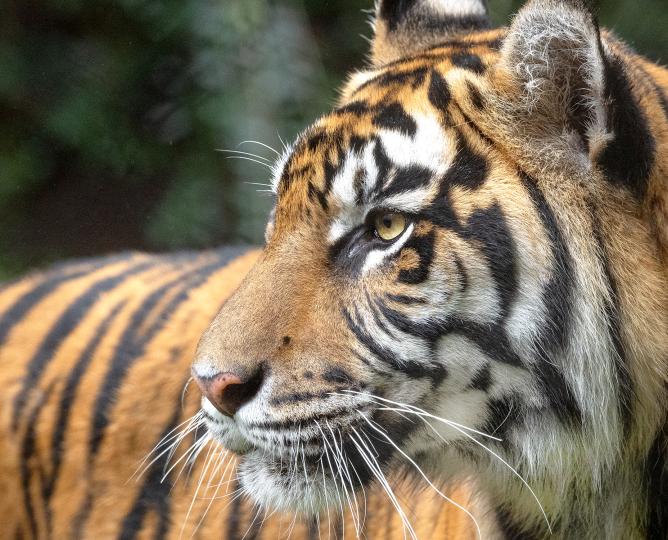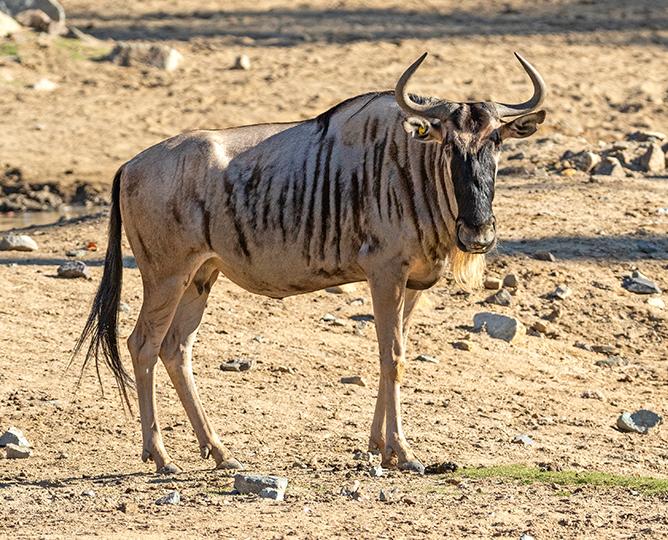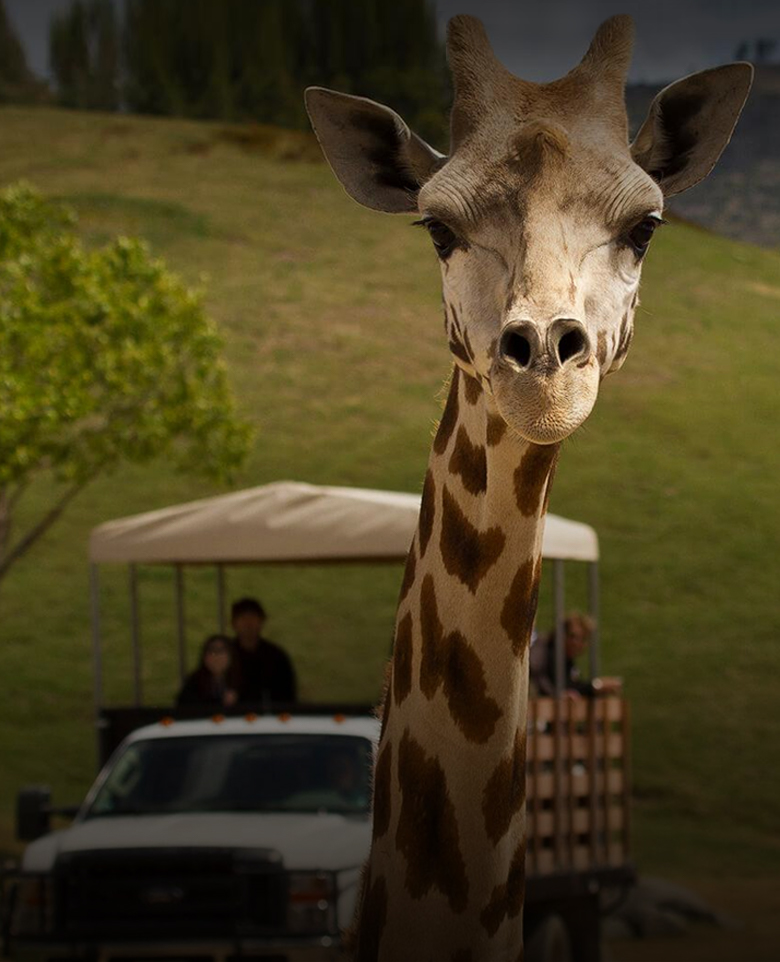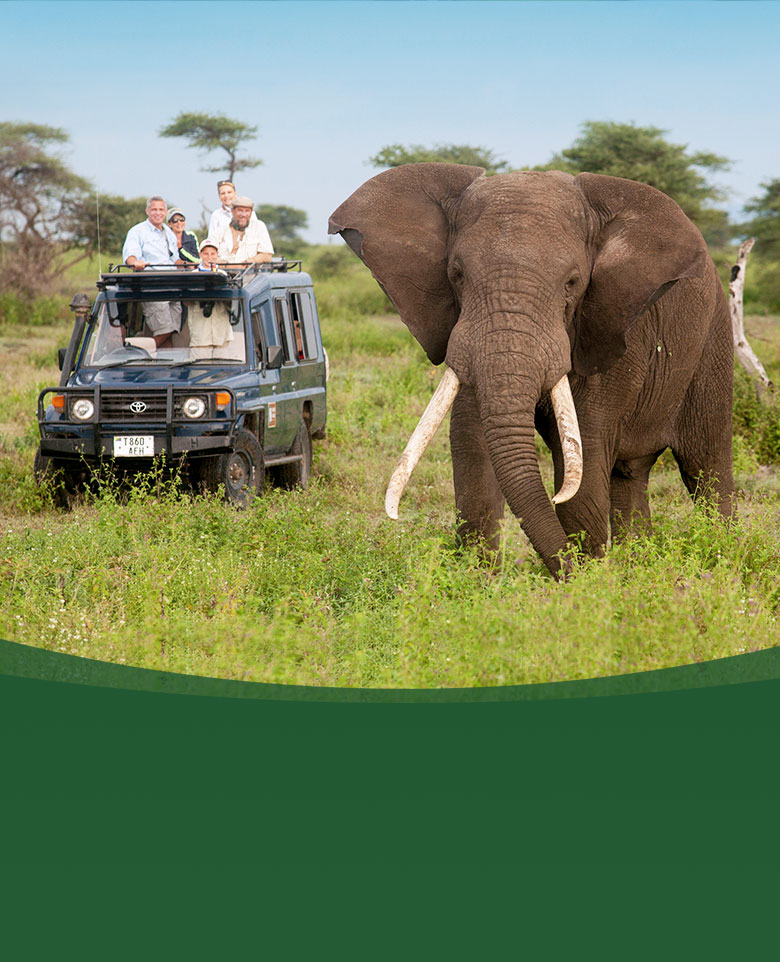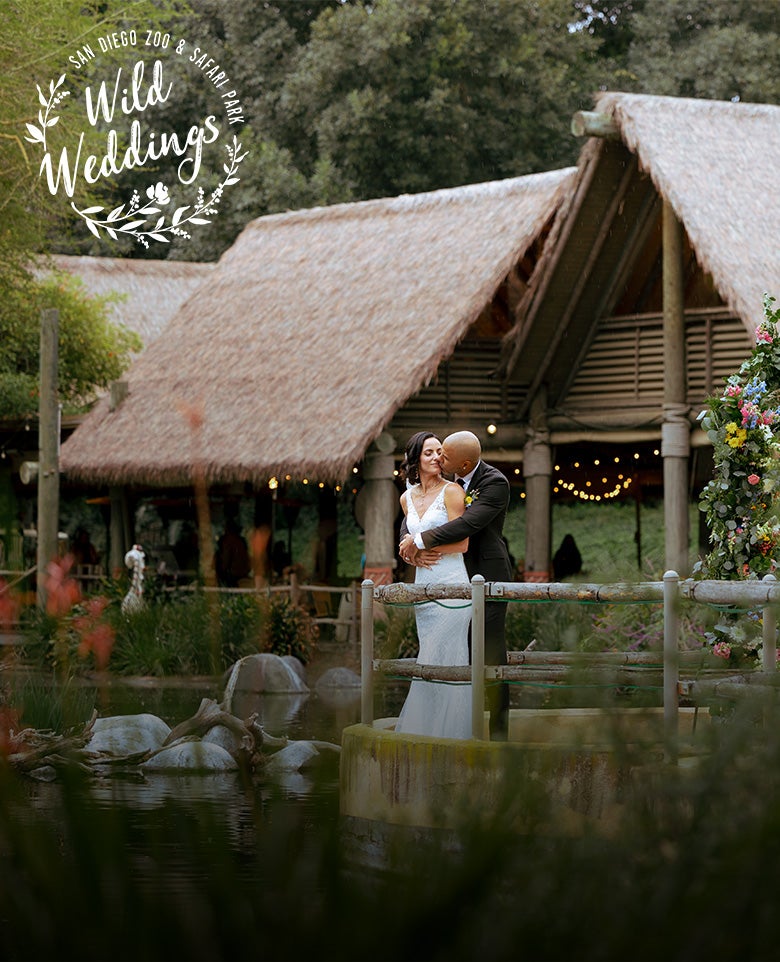Explore the animals and gardens you will encounter on a visit to the Safari Park.
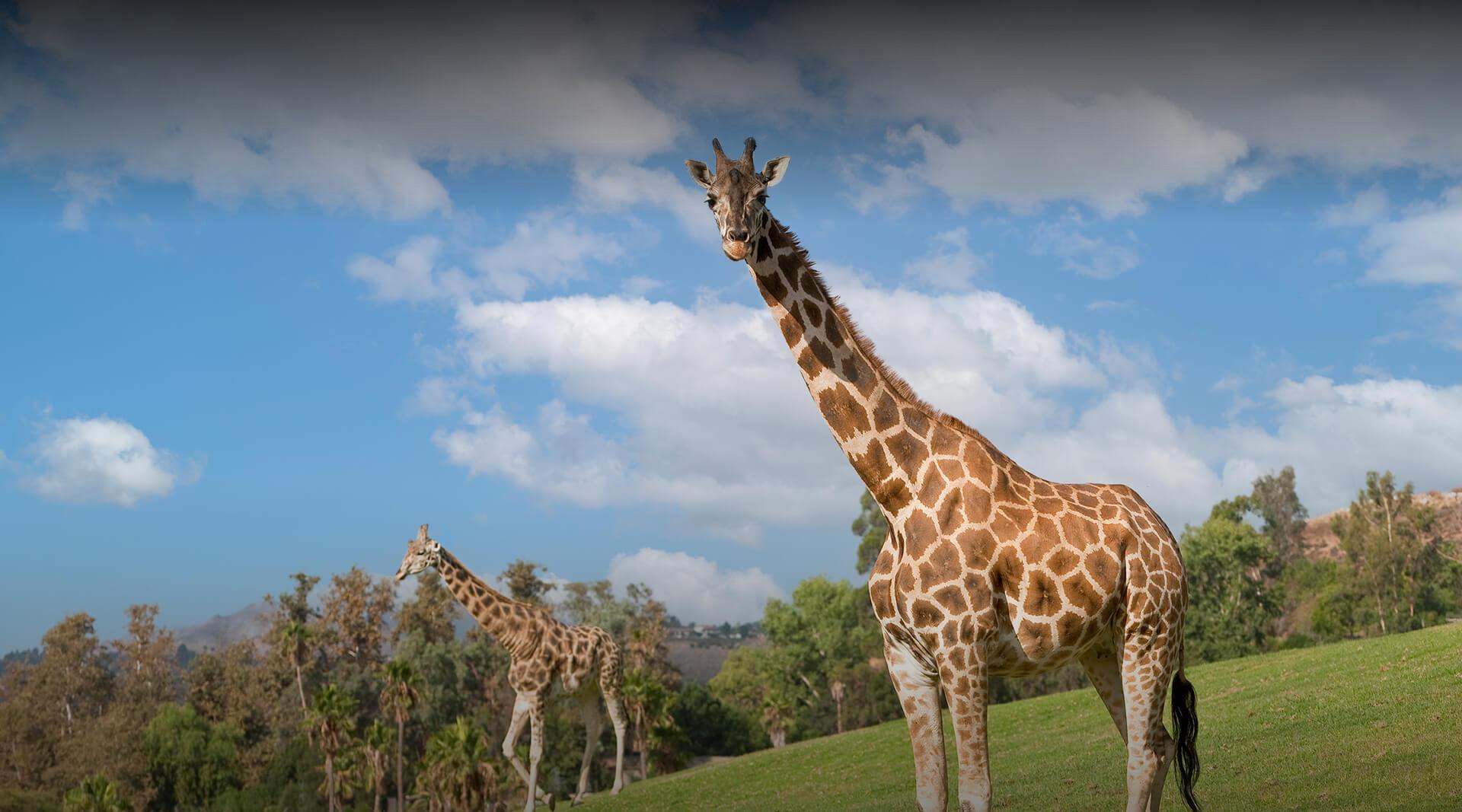
Animals & Gardens
ABDIM'S STORK
Called the grasshopper bird in parts of Africa, the Abdim's stork feasts on swarms of the insects.
African Rhinos
Black rhinos and white rhinos are the same color—a brownish gray—and both live in eastern and southern Africa.
ANDEAN COCK-OF-THE-ROCK
Known for their colorful plumage and high-energy mating displays, males of this species are impossible to ignore.
ANTELOPE
All antelope species have horns. In some species they are only found on the males; in others, both males and females have them.
ARABIAN ORYX
Once extinct in the wild, many Arabian oryx have been reintroduced in Oman and Jordan.
BAJA GARDEN AND OLD WORLD SUCCULENT GARDEN
Succulent. The word conjures up images of things delectable and desirable, and that's what you'll find in the oases of extraordinary plants at the Safari Park called the Old World Succulent Garden and the Baja Garden.
BIGHORN SHEEP
Bighorn sheep have amazing climbing talent, spectacular horns, and can live in some of the world's steepest, most forbidding habitats.
BONSAI PAVILION
Discover a world of tiny trees! The Safari Park's Bonsai Pavilion is a striking showcase for this extraordinary living art.
BURROWING OWL
Instead of making their nest in the hollow of a tree, as most owls do, burrowing owls make their home in abandoned prairie dog burrows or rattlesnake dens.
BUTTERFLY
During their lives, butterflies transform from caterpillar to pupa to fluttering adult. Their remarkable eyes have thousands of lenses, and see flowers in ultraviolet light.
CALIFORNIA CONDOR
North American tribes respect the California condor and see it as a symbol of power. In legends, they call it the "thunderbird," bringing thunder to the skies with the beating of its huge wings.
CHEETAH
Long and lanky, cheetahs are the sprinters of the cat world. Their body is designed to run fast for short distances, allowing them to catch prey that other big cats can’t get.
CROWNED CRANE
The majestic-looking crowned crane is a tall bird with a “crown” of tall, stiff, golden feathers. Its long legs and neck, and excellent peripheral vision help it spot predators in the tall grasses of the savanna.
DIK DIK
Dik diks are small African antelope that weigh only 6 to 13 pounds as adults. Their name is believed to be inspired by the sound they make when alarmed.
DUIKER
Duikers are shy and elusive creatures. Their name comes from the Afrikaans/Dutch word for diver or diving buck, referring to the duikers' practice of diving into tangles of shrubbery.
EGYPTIAN VULTURE
Only a few animal species use tools, and the Egyptian vulture is one of them. It selects just the right-size rock to drop on an ostrich egg, to crack it open—then, this clever bird slurps up the goodies!
ELEPHANT
You can travel to Africa, of course, but the easiest way to observe African elephants is at the Safari Park! We have two large habitat areas for our African elephant herd.
EPIPHYLLUM TRAIL
The Safari Park's Epiphyllum Trail, located between Walkabout Australia and Condor Ridge, includes more than 600 of these surprising plants and their spectacular, eye-catching spring blooms.
FLAMINGO
Social birds, flamingos live in groups of varying sizes, from a few pairs to sometimes thousands, or tens of thousands. The Safari Park is home to the largest population of greater flamingos in North America—and three of the six flamingo species are represented here.
GIRAFFE
Giraffes are the tallest land animals, able to nibble the highest leaves in Africa's acacia trees!
GORILLA
Gorillas are largest of all primates, animals that include monkeys, lemurs, orangutans, chimpanzees, and humans.
GREATER ONE-HORNED RHINO
Many people describe greater one-horned rhinos as "armor-plated," but they are actually covered with a layer of skin that has many folds.
HAMERKOP
Found in the woodlands and wetlands of Africa, the hamerkop is a wading bird famous for its enormous, domed nest.
HERB GARDEN
The Herb Garden is designed and tended by dedicated volunteers—and whether you are an herbal novice or steeped in the lore of herbs, it's a fragrant habitat worth exploring.
HIDDEN JUNGLE
A tropical rain forest is teeming with wildlife that is beautiful, yet often hard to see. But Hidden Jungle’s climate-controlled environment provides excellent views of delicate and fascinating tropical birds and plants.
HORNBILL
You can pick out a hornbill from other birds by the casque above its bill. This hollow or spongy structure is made of keratin, like our fingernails.
KANGAROOS
Kangaroos are macropods—marsupials that carry their young in a pouch, have large hind legs that are ideal for hopping along at impressive speeds through Australia’s savannas or forests, and a long, thick tail that can act as a third leg to help them balance.
LION
In a 24-hour period, lions have short bursts of intense activity followed by long bouts of lying around that can total up to 21 hours!
MAGPIE GOOSE
Black and white coloration gives this bird its "magpie" name, but its long bill, long neck and long legs make it hard to mistake for anything other than a goose.
MATSCHIE'S TREE KANGAROO
Instead of hopping on the ground, Matschie's tree kangaroos climb high in the trees, where they feed on leaves.
NATIVESCAPES GARDEN
The Safari Park's Nativescapes Garden is home to more than 1,500 individual plants representing 500 species, all of which historically call Southern California home.
NILE LECHWE
The Nile lechwe's long, slender hooves are ideal for moving through water and mud—but on dry land, this antelope sometimes looks a bit clumsy.
OKAPI
Okapis are hard to find in the wild—the dense rainforest in central Africa. Scientists didn’t know of the animal's existence until 1900.
PELICAN
Pelicans are among the only birds with an enormous, naked-skin pouch under their bill, which they use to catch fish.
PHEASANT
Argus pheasants are the size of peafowl and live in the montane forests of Southeast Asia. They have powerful legs and strong flight muscles to move their heavy body, and eyes on the side of their head to help detect predators.
PINK PIGEON
Endangered pink pigeons, native to the island of Mauritius, are victims of habitat destruction. In 1994, only 77 of them remained in their native habitats.
PLATYPUS
The platypus looks like no other mammal. And even more unusual, this mammal lays eggs.
PRZEWALSKI'S HORSE
The Przewalski's horse is the closest living relative of the domestic horse—and it is the only true wild horse left on Earth.
RED RIVER HOG
Colorful red river hogs are active both day and night—and they are good swimmers, holding their tail above the water. They can even swim underwater, catching a breath every 15 seconds or so.
RODRIGUES FLYING FOX
In our cozy Bat House in Nairobi Village, a camp of Rodrigues flying foxes observes guests from an upside-down perspective! These cute little creatures weigh about one pound.
RUPPELL'S VULTURE
The Ruppell’s vulture is the world's highest-flying bird, capable of flying at altitudes up to 35,433 feet (10,800 meters).
SCIMITAR-HORNED ORYX
This striking antelope is named for the long, curved shape of their horns.

